Find Help
More Items From Ergsy search
-

What is Bowel Cancer?
Relevance: 100%
-

Can bowel cancer be prevented?
Relevance: 95%
-

How common is bowel cancer?
Relevance: 95%
-

How is bowel cancer diagnosed?
Relevance: 95%
-

What are the risk factors for bowel cancer?
Relevance: 93%
-
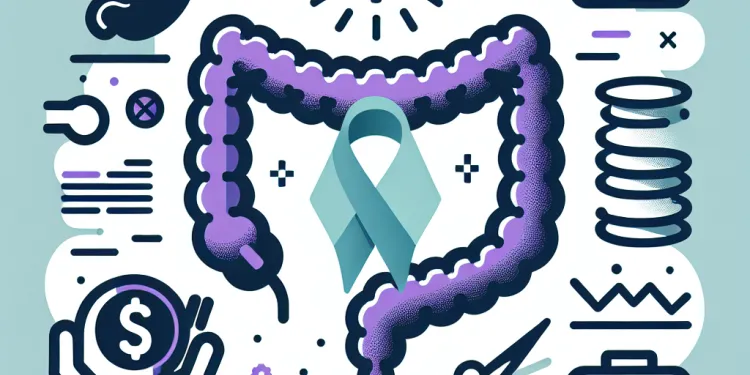
What is the survival rate for bowel cancer?
Relevance: 92%
-
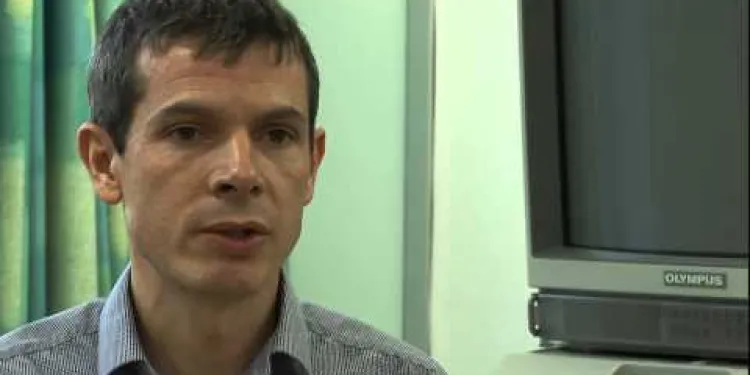
Bowel cancer - Symptoms and signs to look out for
Relevance: 90%
-

How is the stage of bowel cancer determined?
Relevance: 89%
-

What treatment options are available for bowel cancer?
Relevance: 88%
-
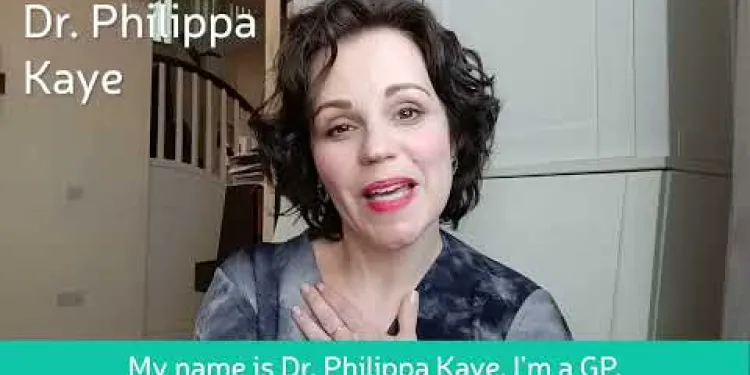
Bowel Cancer
Relevance: 88%
-

Can bowel cancer spread to other parts of the body?
Relevance: 86%
-

How to do the FIT bowel cancer screening test | Cancer Research UK
Relevance: 86%
-

What are the side effects of bowel cancer treatment?
Relevance: 85%
-
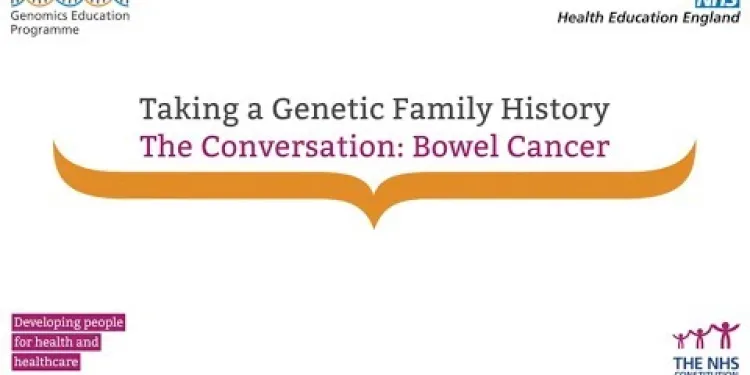
Taking a Genetic Family History - The Conversation (Bowel Cancer)
Relevance: 85%
-

What support is available for individuals diagnosed with bowel cancer?
Relevance: 85%
-
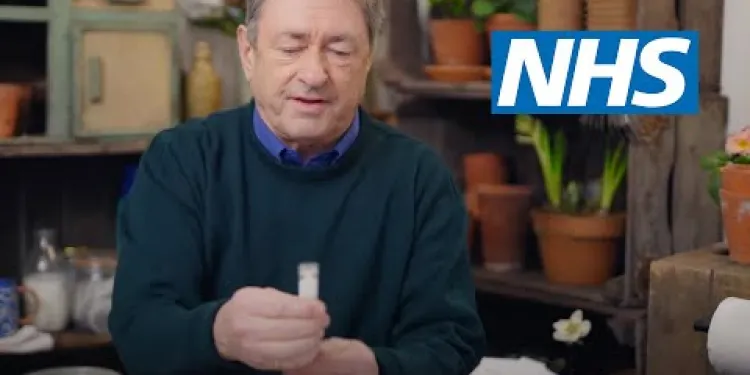
Bowel cancer screening: Alan Titchmarsh and Tommy Walsh | NHS
Relevance: 84%
-
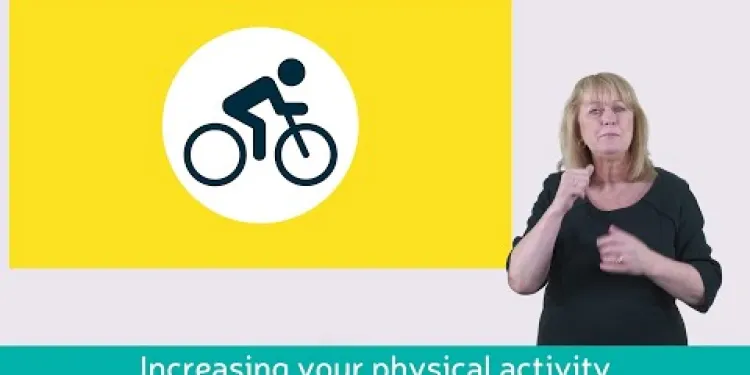
Learn about bowel cancer (British Sign Language version)
Relevance: 84%
-
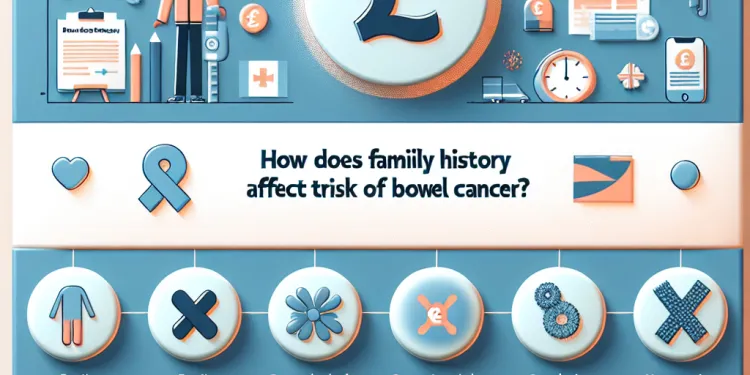
How does family history affect the risk of bowel cancer?
Relevance: 84%
-

What role does diet play in the risk of developing bowel cancer?
Relevance: 83%
-

What lifestyle changes can help lower the risk of bowel cancer?
Relevance: 82%
-
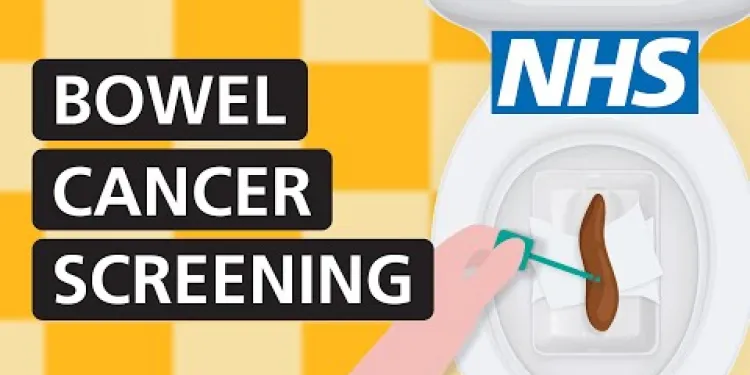
How to use the bowel cancer screening FIT kit | NHS
Relevance: 67%
-

What is the difference between colon cancer and rectal cancer?
Relevance: 67%
-
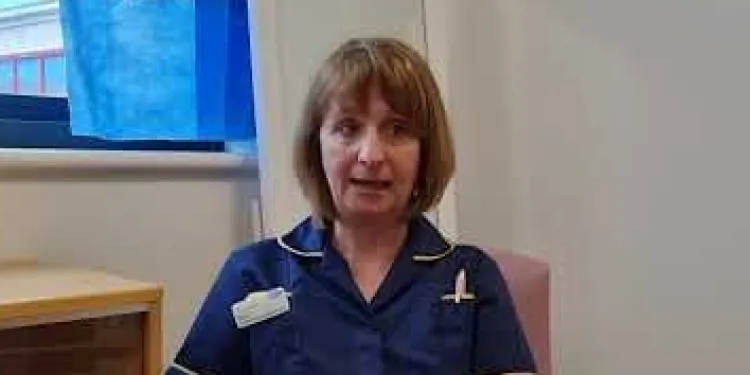
Ovarian cancer - signs and symptoms to look out for
Relevance: 57%
-
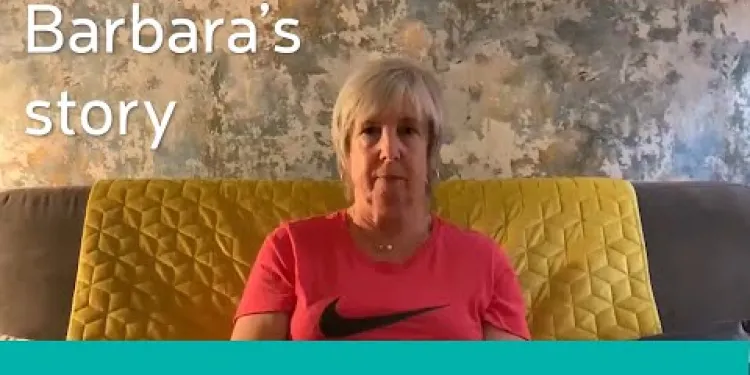
Bowel Cancer
Relevance: 55%
-
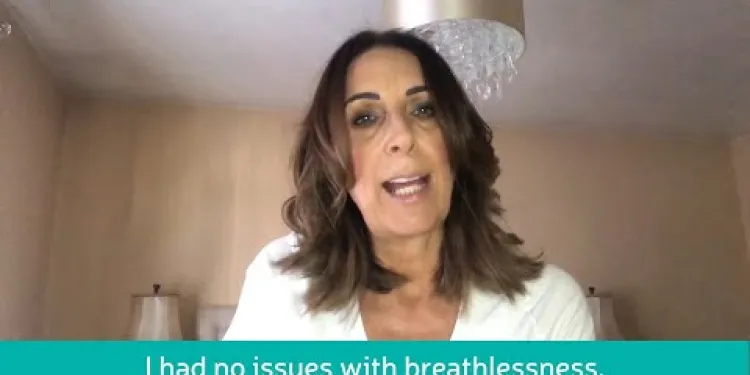
Bowel Cancer
Relevance: 55%
-
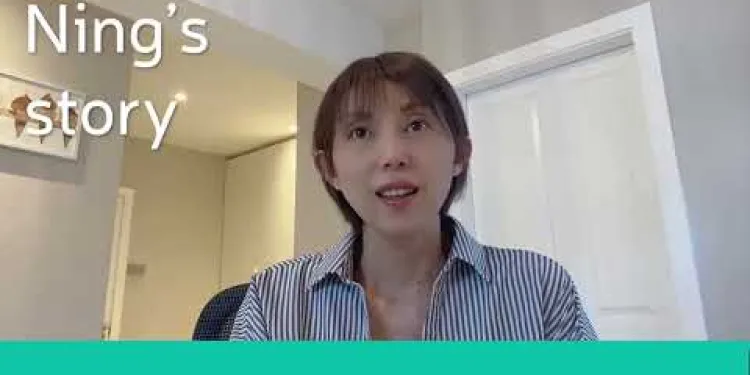
Bowel Cancer
Relevance: 55%
-
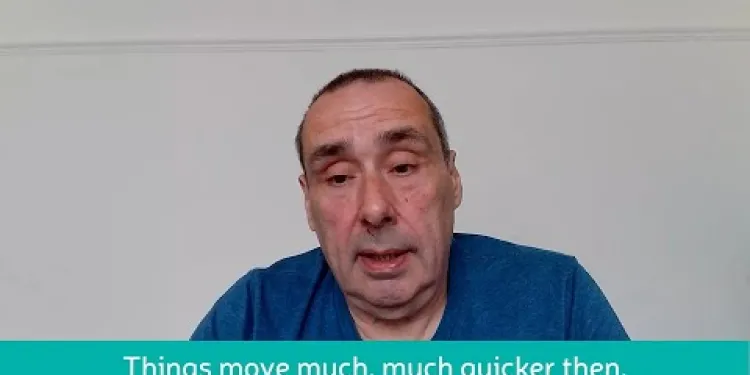
Bowel Cancer
Relevance: 55%
-
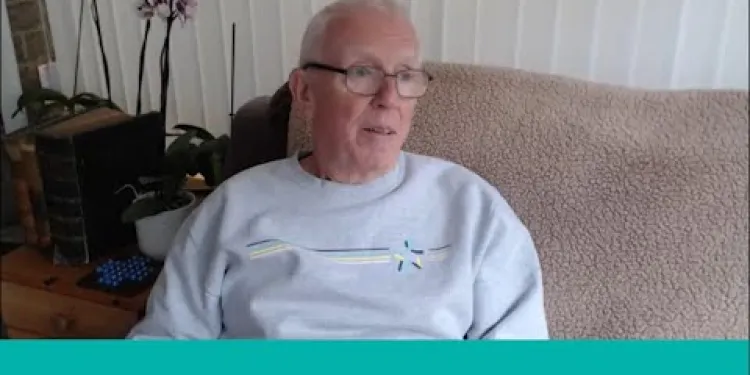
Bowel Cancer
Relevance: 55%
-
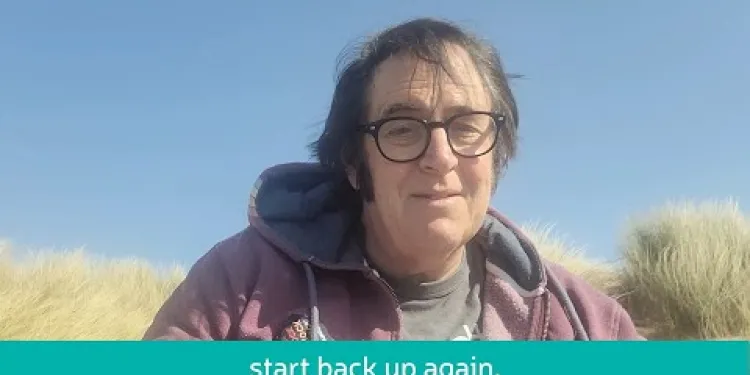
Bowel Cancer
Relevance: 55%
-
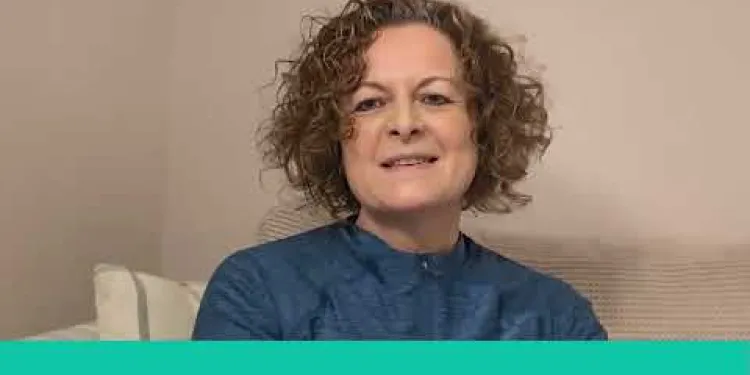
Bowel Cancer
Relevance: 55%
-
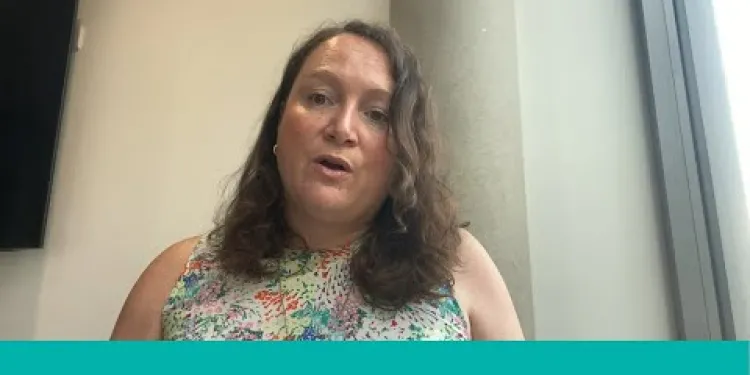
Bowel Cancer
Relevance: 55%
-

Bowel Cancer
Relevance: 55%
-
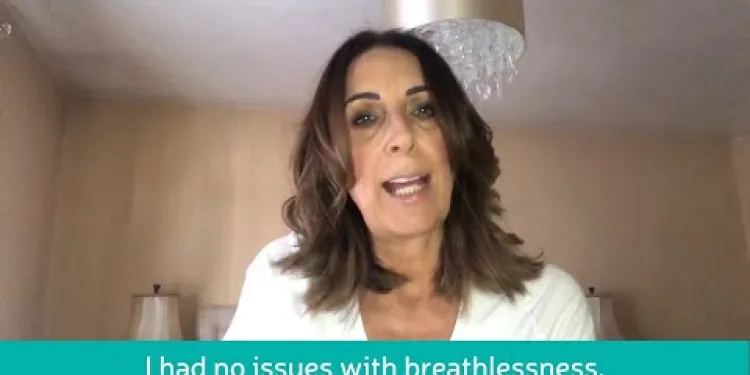
Bowel Cancer
Relevance: 55%
-
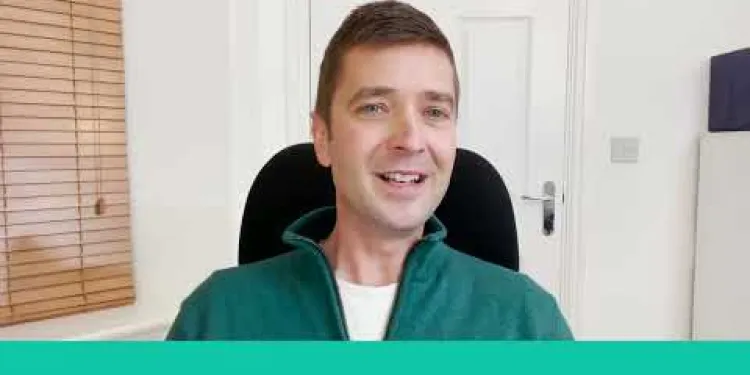
Bowel Cancer
Relevance: 55%
-
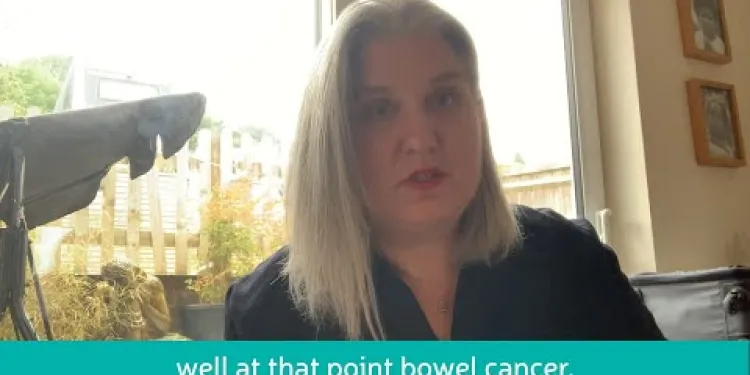
Bowel Cancer
Relevance: 55%
-
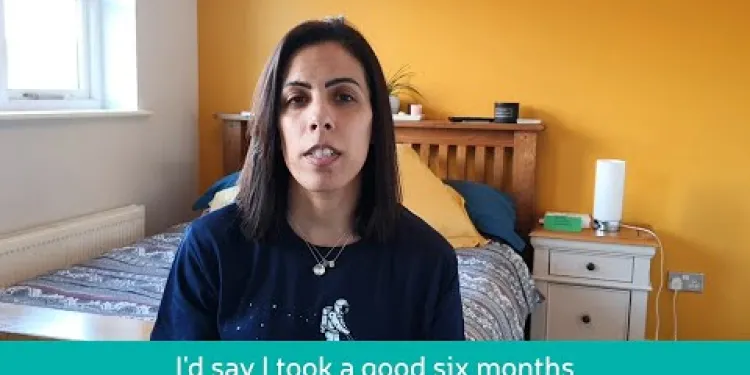
Bowel Cancer
Relevance: 55%
-
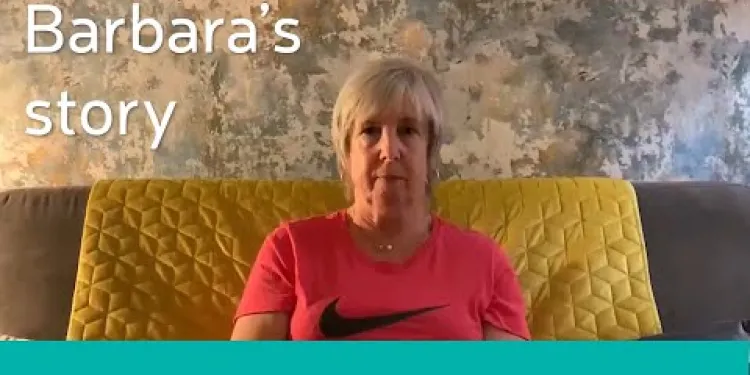
Bowel Cancer
Relevance: 55%
-
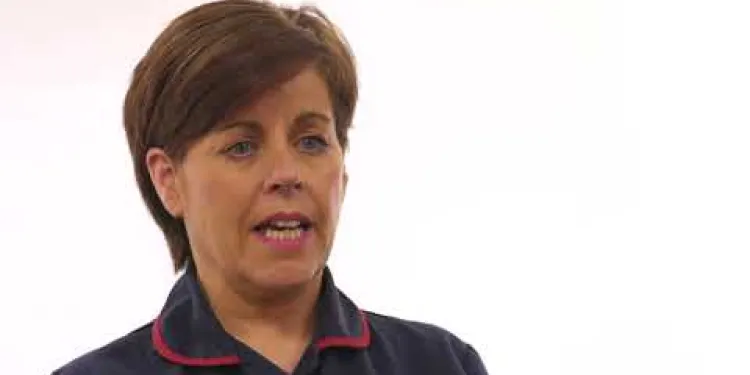
Ovarian Cancer
Relevance: 53%
-
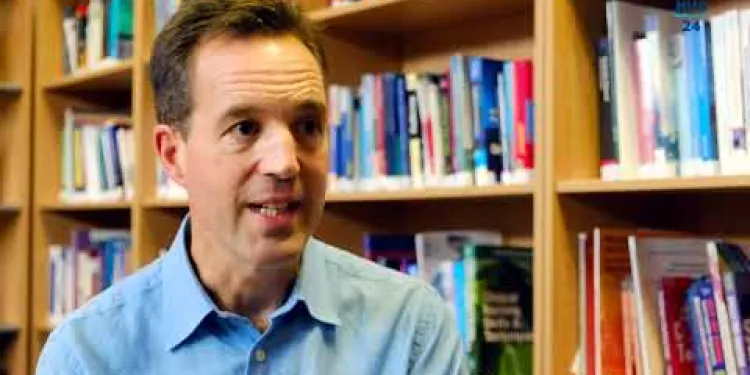
What is irritable bowel syndrome (IBS)?
Relevance: 52%
-
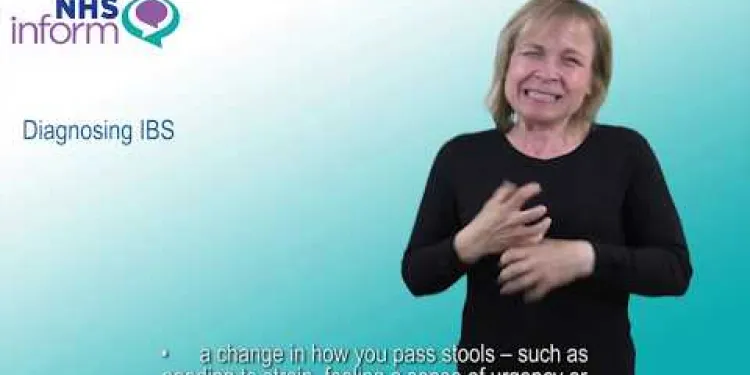
Diagnosing irritable bowel syndrome (IBS)
Relevance: 52%
Dr Philippa Kaye: A Remarkable Journey in Medicine and Media
Early Life and Education
Dr Philippa Kaye grew up with a passion for science and a desire to make a difference in people's lives. Her educational journey began with impressive academic performance, which eventually led her to study medicine. She attended the prestigious London hospitals for her training, where she honed her skills and developed an interest in a wide range of health issues.
Medical Career
Dr Kaye has had a distinguished medical career. She qualified as a General Practitioner (GP) and has worked in various medical settings. Her compassion and dedication to patient care have earned her a respected place among her peers and patients alike. Additionally, Dr Kaye has been involved in teaching and mentoring, sharing her extensive knowledge and experience with the next generation of medical professionals.
Transition to Media
Apart from her medical practice, Dr Philippa Kaye has also made a significant impact in the media. She realized that reaching a wider audience through television, radio, and writing could amplify her ability to educate the public on health-related topics. Dr Kaye has become a familiar face on British television, providing expert advice on shows like "This Morning" and "BBC Breakfast". Her ability to explain complex medical information in an accessible manner has made her a trusted figure in health communication.
Author and Advocate
Dr Kaye is also an accomplished author, having written several books on health and wellbeing. Her publications cover a diverse range of topics, including teenage health, pregnancy, and chronic conditions. Through her writing, she aims to demystify medical jargon and empower individuals to take control of their health.
Personal Challenges
In addition to her professional achievements, Dr Philippa Kaye's personal story is one of resilience and strength. She has openly discussed her battle with bowel cancer, using her platform to raise awareness and reduce the stigma associated with the disease. Her candidness about her journey has inspired many and highlights her commitment to helping others through shared experiences.
Conclusion
Dr Philippa Kaye's story is one of dedication, expertise, and compassion. Her contributions to medicine and media have positively impacted countless lives in the United Kingdom. By bridging the gap between clinical practice and public education, Dr Kaye continues to be a significant advocate for health and wellbeing.
Dr Philippa Kaye: An Amazing Story in Medicine and Media
Growing Up and School
When she was young, Dr Philippa Kaye loved science and wanted to help people. She did very well in school and decided to study medicine. She went to big hospitals in London to learn how to be a doctor. There, she learned a lot and found out she was interested in many health topics.
Becoming a Doctor
Dr Kaye has had a great career as a doctor. She became a General Practitioner (GP), which means she helps people with different health problems. She is very caring and works hard for her patients. Other doctors and patients respect her a lot. Dr Kaye also teaches new doctors by sharing her knowledge and experience.
Working in Media
Besides being a doctor, Dr Philippa Kaye also works in media. She wanted to teach even more people about health, so she started talking on TV, radio, and writing. Lots of people in the UK know her from TV shows like "This Morning" and "BBC Breakfast". She is very good at explaining health topics in a simple way that everyone can understand.
Writing Books
Dr Kaye writes books, too. She has written many books about health and how to stay well. Her books talk about things like teenage health, pregnancy, and long-term illnesses. She writes to help people understand health better and to feel confident about taking care of themselves.
Her Personal Story
Dr Philippa Kaye also shares her own life challenges. She had bowel cancer and talks openly about it. By sharing her story, she helps others know they are not alone and encourages more people to learn about this disease. Her bravery gives hope to many people.
In Summary
Dr Philippa Kaye is an amazing person who cares deeply about health and people. She uses her skills as a doctor and her voice in media to help many in the UK. Dr Kaye is a true leader in helping people understand their health better.
If reading is hard, there are tools to help, like audiobooks which read stories out loud or text-to-speech apps. They can make understanding things easier and more fun!
Frequently Asked Questions
Who is Dr Philippa Kaye?
Dr Philippa Kaye is a GP, author, and media personality in the United Kingdom, known for her work in family medicine and health education.
What is the primary focus of Dr Philippa Kaye's story?
The primary focus of Dr Philippa Kaye's story is her journey through diagnosis, treatment, and recovery from bowel cancer, and her efforts to raise awareness about the disease.
Why is Dr Philippa Kaye's story significant?
Her story is significant because it highlights the importance of early diagnosis and the personal and emotional challenges faced by patients undergoing cancer treatment.
What symptoms did Dr Philippa Kaye experience that led to her diagnosis?
Dr Philippa Kaye experienced symptoms such as altered bowel habits, rectal bleeding, and abdominal pain, which led her to seek medical advice and eventually get diagnosed.
How did Dr Philippa Kaye contribute to raising awareness about bowel cancer?
She has contributed through public speaking, writing articles and books, appearing on television and radio programs, and using social media to share her experiences and promote early screening.
What treatments did Dr Philippa Kaye undergo for her bowel cancer?
Dr Philippa Kaye underwent surgery to remove the cancer, followed by chemotherapy to eradicate any remaining cancer cells.
How has Dr Philippa Kaye's experience influenced her professional work?
Her experience has deepened her empathy for patients, informed her approach to patient care, and motivated her to advocate for better cancer awareness and support systems.
What advice does Dr Philippa Kaye give to individuals regarding bowel cancer screening?
She advises individuals to participate in regular screening programs, pay attention to symptoms, and seek medical help promptly if they notice any unusual changes.
How did Dr Philippa Kaye's family and friends support her during her illness?
Her family and friends provided emotional support, helped with daily activities, and were a source of strength and encouragement throughout her treatment.
What lifestyle changes did Dr Philippa Kaye make following her cancer diagnosis?
Dr Philippa Kaye adopted a healthier diet, increased her physical activity, managed stress better, and became more attuned to her body's signals.
How does Dr Philippa Kaye balance her professional responsibilities with her health advocacy?
She integrates her personal experiences into her professional activities, using her medical knowledge and media presence to educate and support others while maintaining her clinical practice.
What message does Dr Philippa Kaye want to convey to other cancer patients?
She wants to convey the message that they are not alone, that support is available, and that early detection and treatment can significantly improve outcomes.
What role does Dr Philippa Kaye believe GPs should play in cancer care?
She believes GPs should play a critical role in early detection, patient education, emotional support, and coordinating care with specialists.
Has Dr Philippa Kaye written any books related to her experience with cancer?
Yes, she has written books and articles that share her journey, provide medical information, and offer support and guidance for patients and their families.
Where can people find more information about Dr Philippa Kaye and her work?
People can find more information on her official website, social media profiles, and through her published books and media appearances.
Who is Dr Philippa Kaye?
Dr Philippa Kaye is a doctor who helps people. She knows a lot about how our bodies work and how to stay healthy.
If you want to know more about Dr Philippa Kaye, you can use these ideas:
- Look at a video or a picture of her if you find reading hard.
- Ask someone to read with you and help explain what you don’t understand.
Dr. Philippa Kaye is a doctor, writer, and TV personality in the UK. She helps people with family health and teaches about being healthy.
What is the main idea of Dr. Philippa Kaye's story?
Dr. Philippa Kaye had bowel cancer. Her story is about how she found out, got better, and how she wants to help others learn about bowel cancer.
Why is Dr Philippa Kaye's story important?
Dr Philippa Kaye's story is important because it can help people learn and feel better. She shares her experiences and knowledge to help others.
If you find reading hard, try using tools like audiobooks or ask someone to read with you. Drawing pictures about what you read can also help you understand better.
Her story is important because it shows why finding cancer early is good. It also talks about the hard feelings and problems people have when they get treated for cancer.
What signs did Dr. Philippa Kaye notice that helped her find out she was sick?
Dr. Philippa Kaye had some signs that helped her know she wasn't well. These signs are called symptoms.
Here are some tips to help with reading:
- Look at one word at a time.
- Read slowly and take your time.
- Use your finger to follow along the line.
Using these tips can make reading easier.
Dr. Philippa Kaye noticed some changes when she went to the toilet. She also had bleeding from her bottom and a tummy ache. This made her go to the doctor to find out what was wrong.
How did Dr. Philippa Kaye help people learn about bowel cancer?
She helps people in different ways. She gives talks, writes articles and books, and goes on TV and radio shows. She also uses social media to share her stories and tell people why it's important to check for problems early.
What did Dr. Philippa Kaye do to get better from bowel cancer?
Dr. Philippa Kaye had bowel cancer. She went through some treatments to help her get better. These treatments are like special medicines and doctor visits that help fight the cancer.
Dr. Philippa Kaye's treatments might include going to the hospital, taking medicine, or having surgery. Surgery is when doctors help by cutting out the bad parts that make us sick.
It's okay if you find this confusing. You can ask someone you trust to help you understand, like a family member or a teacher.
Dr. Philippa Kaye had an operation to take out the cancer. After that, she had medicine to kill any cancer left in her body.
How does Dr. Philippa Kaye's experience help her in her work?
Dr. Philippa Kaye has learned many things from her own life. These lessons help her do better work.
When someone has experience, it means they have done things before. This helps them understand what to do.
Dr. Kaye uses her experience to help people feel better. She knows what works and what doesn't from what she learned.
When reading about Dr. Kaye, using tools like a ruler or your finger can help follow along. Taking notes or drawing pictures about what you read can also help understand better.
She understands how patients feel. This helps her care for them better. She now wants to help others know more about cancer and make support better.
What advice does Dr. Philippa Kaye give about checking for bowel cancer?
Dr. Philippa Kaye says:
- It is important to check for bowel cancer.
- Checking can help find cancer early.
- Finding cancer early helps you get better treatment.
- If you get a kit in the mail, use it.
- If you feel worried or scared, talk to a doctor or nurse.
Tools to help:
- Ask someone you trust to help you read the information.
- Watch videos or look at pictures to understand better.
- Use a calendar to remember when to check.
She says people should go to health check-ups often. Pay attention to how your body feels. If you notice any changes that are not normal, go to the doctor quickly.
How Did Dr. Philippa Kaye's Family and Friends Help Her When She Was Sick?
When Dr. Philippa was sick, her family and friends were there to help. They stayed by her side and made sure she was okay. They talked to her and made her smile. Her family and friends worked together to give her the love and care she needed.
If you are helping someone who is sick, here are some ideas:
- Talk to them and listen to their feelings.
- Spend time with them, so they don't feel alone.
- Help them with things they find hard to do.
- Tell them you care about them and give them lots of love.
Her family and friends gave her love and care. They helped her with everyday things. They made her feel strong and happy while she got better.
What did Dr. Philippa Kaye change in her life after she found out she had cancer?
Dr. Philippa Kaye learned she had cancer. After that, she changed some things in her life.
Here are some things to help understand the question:
- Think about what "lifestyle changes" means. This can be new things we do every day to be healthy.
- Remember, everyone can make changes to help their health.
If you need help reading, you can:
- Ask someone to read it with you.
- Use a tool that reads the text out loud.
Dr. Philippa Kaye started eating healthier foods. She moved her body more, learned to relax better, and listened to what her body was telling her.
How does Dr. Philippa Kaye manage her job and help others?
Dr. Philippa Kaye is a busy doctor. She has to do her job and also work on helping people stay healthy. Here is how she does it:
- Dr. Kaye makes a plan to do both her job and her helping work.
- She talks to other doctors and experts to learn and share ideas.
- Dr. Kaye stays healthy herself so she can help others better.
If you need help to read, you can ask a friend, use an app that reads for you, or listen to an audio version.
She uses her own life experiences in her work. She shares what she knows about medicine and talks to many people on TV and online. This way, she can teach and help others. She still works as a doctor too.
What does Dr. Philippa Kaye want to tell other people with cancer?
Dr. Philippa Kaye wants to give hope and support. She wants to remind people they are not alone. It is important to talk to doctors, friends, and family. They can help. It's okay to ask for help. There are groups and people who can support you.
Using pictures or videos can help understand better. Reading with a friend or family member can also be helpful.
She wants to say that people are not alone. Help is available. Finding and treating problems early can make things much better.
What does Dr. Philippa Kaye think GPs should do to help with cancer care?
Dr. Philippa Kaye wants GPs (family doctors) to help people with cancer. She thinks they should be part of the team that helps you get better. GPs can talk to you about your treatment and help you understand what is happening. They can also listen to your worries and answer your questions.
When you have questions, it’s good to talk to your GP. They can help you feel better and tell you what to do next. They work with other doctors to make sure you get the best help. Having a notebook can be a good way to write down your questions before visiting your GP. You can also ask for someone to go with you to the appointment for support.
She thinks GPs (doctors) should help find problems early, help people understand their health, give support when people feel worried, and work with other doctors to take care of people.
Did Dr. Philippa Kaye write any books about her cancer experience?
Yes, she has written books and articles. These books and articles talk about her journey. They also give medical information. And they help patients and their families with support and advice.
Where can people learn more about Dr. Philippa Kaye and what she does?
Here is how you can find out more:
- Look for Dr. Philippa Kaye's books in the library or online.
- Visit her website if she has one.
- Search for videos about her on YouTube.
- Ask a teacher or a parent to help you find more information.
If you need help, you can use tools like:
- A dictionary to understand new words.
- A screen reader to listen to the text.
You can learn more about her by:
- Visiting her website.
- Looking at her social media pages.
- Reading her books.
- Watching her on TV or videos.
Useful Links
Useful links from: Bowel cancer - Symptoms and signs to look out for
- NHS - Bowel Cancer This page from the NHS provides comprehensive information on bowel cancer, including symptoms, causes, diagnosis, treatment, and prevention.
- Cancer Research UK - Bowel Cancer Symptoms Cancer Research UK's page on bowel cancer symptoms details the various signs and symptoms to look out for, as well as information on early detection and when to see a doctor.
- Bowel Cancer UK - Symptoms Bowel Cancer UK's overview of symptoms provides important insights into the early warning signs of bowel cancer, along with advice on when to seek medical advice.
- Macmillan Cancer Support - Bowel Cancer Symptoms Macmillan Cancer Support offers a detailed guide on the symptoms of bowel cancer, emphasizing how to recognize the signs and understanding the importance of early diagnosis.
Useful links from: Bowel Cancer
- NHS North East London - Barbara’s Story Barbara’s Story is an educational resource used by NHS North East London to promote awareness about the experiences of vulnerable patients, particularly those with dementia, in healthcare settings.
- Alzheimer's Society UK - Barbara's Story in Dementia Education The Alzheimer’s Society uses Barbara’s Story as a key training tool to enhance understanding and empathy towards people with dementia, ensuring their voices and needs are better heard in medical care.
- Age UK - Barbara's Story: Enhancing Patient Experience Age UK includes Barbara's Story as part of its training resources, aimed at improving the quality of care for elderly patients, with a special focus on those suffering from cognitive impairments.
- Dementia UK - Learning Through the Lens of Barbara’s Story Dementia UK provides Barbara’s Story as a training video to healthcare professionals, to help develop a more empathetic understanding of the challenges faced by people living with dementia.
Useful links from: Taking a Genetic Family History - The Conversation (Bowel Cancer)
- NHS - Family History of Bowel Cancer This NHS page provides information on the causes of bowel cancer, including genetic factors and family history. It offers insights into hereditary risks and screening recommendations.
- Cancer Research UK - Bowel Cancer and Family History Cancer Research UK highlights the different risk factors for bowel cancer, focusing on genetic predispositions and the importance of family history in understanding individual risk levels.
- Bowel Cancer UK - Genetic Conditions Bowel Cancer UK provides detailed information on genetic conditions associated with a higher risk of developing bowel cancer. It offers resources for those with a family history and advice on genetic testing.
- Macmillan Cancer Support - Bowel Cancer Risk Factors Macmillan Cancer Support discusses the various risk factors for bowel cancer, with a focus on how family history and genetics can influence an individual's risk and the importance of early detection.
Useful links from: Bowel Cancer
- NHS - Mental Health Services Information about the mental health services provided by the NHS, including how to access them and what support is available.
- Mind - Mental Health Charity A UK-based charity offering advice and support to anyone experiencing a mental health problem.
- Rethink Mental Illness A charity that supports people who are affected by mental illness through advocacy, advice, and information.
- Samaritans - Providing Emotional Support A UK charity offering emotional support 24/7 to anyone who is dealing with distress or mental health issues.
Useful links from: Bowel Cancer
- National Health Service (NHS) The NHS website provides information and advice on a wide range of health and care topics. You can find NHS services, check your symptoms, find out about treatments, and read health news and articles.
- Mind UK Mind is a mental health charity offering advice and support to anyone experiencing a mental health problem. They provide a range of resources including information on mental health conditions, where to get help, and ways to support others.
- Samaritans Samaritans is a charity dedicated to reducing feelings of isolation and disconnection that can lead to suicide. They offer 24/7 support to anyone in need, through a helpline, email, or face-to-face services.
- Rethink Mental Illness Rethink Mental Illness is a charity that aims to improve the lives of people severely affected by mental illness through local groups, expert advice, information, and campaigning for policy change.
Useful links from: Bowel Cancer
- NHS - Mental health and wellbeing The NHS provides a comprehensive guide on mental health conditions, including information on symptoms, treatments, and how to get help.
- Mind - For better mental health Mind is a UK-based charity offering advice and support to empower anyone experiencing a mental health problem. They campaign to improve services, raise awareness, and promote understanding.
- Rethink Mental Illness Rethink Mental Illness provides support and information for people affected by mental illness. They offer services and support groups, as well as campaigning for better mental health services.
- YoungMinds YoungMinds is a charity dedicated to children and young people's mental health. They offer resources for young people, parents, and professionals, and campaign for better mental health support.
Useful links from: Bowel Cancer
- NHS - Living with a Stoma Provides comprehensive guidance on living with a stoma, including practical advice on changing and caring for a stoma bag.
- Colostomy UK - Changing Your Stoma Bag Offers a detailed PDF guide on how to change your stoma bag, courtesy of Colostomy UK, a dedicated UK-based charity.
- Bladder & Bowel Community - Ostomy Guide Provides an extensive ostomy guide, including step-by-step instructions for changing a stoma bag, from a UK-based community support organization.
- NHS - Stoma Care Offers essential tips and best practices for stoma care, including advice and instructional videos on changing a stoma bag.
Useful links from: Bowel Cancer
- NHS - People Who Can Help This NHS page offers a list of mental health helplines and services for urgent support in the UK, which may be beneficial for individuals facing similar challenges as Wynne.
- Mind - For Better Mental Health Mind is a UK-based charity providing advice and support to empower anyone experiencing a mental health problem. They campaign to improve services, raise awareness and promote understanding.
- Rethink Mental Illness Rethink Mental Illness provides expert advice and information to everyone affected by mental health problems. They offer extensive resources that can help individuals like Wynne cope with their conditions.
- Samaritans - Emotional Support Samaritans is a charity that provides confidential emotional support to those experiencing distress or despair. Their services could be a vital resource for anyone in need of urgent emotional assistance.
Useful links from: Bowel Cancer
- NHS - Mental Health and Wellbeing The NHS provides comprehensive information and support for mental health and wellbeing, including symptoms, treatments, and advice on managing stress, anxiety, and depression.
- Mind - Mental Health Charity Mind is a UK-based charity that offers advice and support to empower anyone experiencing a mental health problem. They also campaign to improve services, raise awareness, and promote understanding.
- Rethink Mental Illness Rethink Mental Illness is a charity that provides expert, accredited advice and information to everyone affected by mental health issues. They offer a wide range of support services, including helplines, support groups, and resources.
- Samaritans Samaritans is a UK charity that offers emotional support to anyone in distress, struggling to cope, or at risk of suicide. Their helpline is available 24/7 to provide confidential support.
Useful links from: Bowel Cancer
- NHS: Mental Health Services This NHS page provides comprehensive information on accessing mental health services, including where to get help and what types of services are available.
- Mind: Mental Health Support Mind is a UK charity offering advice and support to empower anyone experiencing a mental health problem. It also campaigns to improve services, raise awareness, and promote understanding.
- Samaritans: Emotional Support Samaritans is a UK charity offering confidential emotional support to anyone in distress or struggling to cope, available 24/7 via their helpline.
- Rethink Mental Illness Rethink Mental Illness is a UK charity that provides expert, accredited advice and information to everyone affected by mental health problems, supporting recovery and improving the lives of those with mental illness.
Useful links from: Bowel Cancer
- NHS Mental Health and Wellbeing Comprehensive resource for mental health and wellbeing, providing information on conditions, treatments, and where to get help.
- Mind - For Better Mental Health UK charity offering information and support for people experiencing mental health problems. Provides advice, helplines, and local services.
- Samaritans A UK charity dedicated to reducing feelings of isolation and disconnection that can lead to suicide. Offers 24/7 support through their hotline.
- Rethink Mental Illness Provides information, services, and a strong voice for everyone affected by mental illness, challenging attitudes, and changing lives.
Useful links from: Bowel Cancer
- NHS: Mental health services - Where to get urgent help for mental health Provides information on how to get urgent help for mental health problems, including contact details and what to do in a mental health crisis.
- Mind: Paul's Story A personal account of Paul's experiences with mental health challenges, offering insights and hope for others facing similar issues.
- Samaritans: How we can help Offers emotional support to anyone in distress or struggling to cope, 24 hours a day, 365 days a year.
- Rethink Mental Illness: Our personal experiences Contains personal accounts from individuals living with mental illness, aiming to raise awareness and reduce stigma.
Useful links from: Bowel Cancer
- NHS - Mental Health Information and support for mental health issues provided by the NHS, including resources for managing conditions and accessing services.
- Mind Mind is a UK-based charity that offers advice and support to empower anyone experiencing a mental health problem. It also campaigns to improve services, raise awareness, and promote understanding.
- Rethink Mental Illness Rethink Mental Illness helps millions of people affected by mental illness by providing expert, accredited advice and information, tailored support, and campaigning for change.
- Samaritans Samaritans provides emotional support to anyone in emotional distress, struggling to cope, or at risk of suicide throughout the United Kingdom and Ireland.
Useful links from: Bowel Cancer
- NHS - Mental Health and Wellbeing Official NHS resource for mental health, including a range of support services, self-help guides, and advice on managing mental wellbeing.
- Mind - Mental Health Charity Leading UK mental health charity offering information, advice, and resources to help those experiencing mental health issues. Provides support groups and an extensive library of information.
- Rethink Mental Illness Provides expert, accredited advice and information to everyone affected by mental health problems. Focuses on severe mental illnesses and offers support, services, and advice.
- Samaritans A confidential emotional support service for anyone in the UK and Ireland. Available 24/7 through various means including phone, email, and face-to-face.
Useful links from: Danny's Story
- NHS - Danny's Story Learn about Danny’s Story on the NHS website, which highlights the journey and experiences of individuals with autism.
- National Autistic Society - Real Stories Explore Danny’s story on the National Autistic Society’s website, focusing on real-life accounts of people on the autism spectrum.
- Mind - Stories and Experiences Read about Danny’s experience with mental health on the Mind charity website, offering support and insights for those affected.
- YoungMinds - Mental Health Stories Find Danny’s story on the YoungMinds website, which shares the personal journeys of young people dealing with mental health challenges.
Useful links from: Bowel Cancer
- NHS - Barbara's Story An overview of Barbara's Story, which is an initiative aimed at educating healthcare professionals on the effects of dementia through a series of video narratives.
- Alzheimer's Society - Barbara’s Story and Dementia Training Information provided by the Alzheimer's Society on Barbara's Story, including its use in dementia training to improve understanding and empathy among healthcare staff.
- King’s Health Partners - Barbara's Story King’s Health Partners' page on Barbara's Story, detailing its significance and the impact it has had on dementia care and training within the NHS.
- Dementia UK - Barbara’s Story Dementia UK’s resources on Barbara's Story, exploring how the narrative approach is used to enhance the care of people with dementia and support their families.
Useful links from: Dr Philippa Kaye's story
- NHS - Health A-Z Comprehensive guide to conditions, symptoms, and treatments provided by the NHS.
- Macmillan Cancer Support UK charity offering support and information to those affected by cancer.
- Cancer Research UK UK-based cancer research and awareness charity, providing detailed information on cancer types, symptoms, and treatments.
- Mind UK Leading mental health charity in the UK providing advice and support to empower anyone experiencing a mental health problem.
- Ergsy carfully checks the information in the videos we provide here.
- Videos shown by Youtube after a video has completed, have NOT been reviewed by ERGSY.
- To view, click the arrow in centre of video.
- Most of the videos you find here will have subtitles and/or closed captions available.
- You may need to turn these on, and choose your preferred language.
- Go to the video you'd like to watch.
- If closed captions (CC) are available, settings will be visible on the bottom right of the video player.
- To turn on Captions, click settings .
- To turn off Captions, click settings again.
More Items From Ergsy search
-

What is Bowel Cancer?
Relevance: 100%
-

Can bowel cancer be prevented?
Relevance: 95%
-

How common is bowel cancer?
Relevance: 95%
-

How is bowel cancer diagnosed?
Relevance: 95%
-

What are the risk factors for bowel cancer?
Relevance: 93%
-

What is the survival rate for bowel cancer?
Relevance: 92%
-

Bowel cancer - Symptoms and signs to look out for
Relevance: 90%
-

How is the stage of bowel cancer determined?
Relevance: 89%
-

What treatment options are available for bowel cancer?
Relevance: 88%
-

Bowel Cancer
Relevance: 88%
-

Can bowel cancer spread to other parts of the body?
Relevance: 86%
-

How to do the FIT bowel cancer screening test | Cancer Research UK
Relevance: 86%
-

What are the side effects of bowel cancer treatment?
Relevance: 85%
-

Taking a Genetic Family History - The Conversation (Bowel Cancer)
Relevance: 85%
-

What support is available for individuals diagnosed with bowel cancer?
Relevance: 85%
-

Bowel cancer screening: Alan Titchmarsh and Tommy Walsh | NHS
Relevance: 84%
-

Learn about bowel cancer (British Sign Language version)
Relevance: 84%
-

How does family history affect the risk of bowel cancer?
Relevance: 84%
-

What role does diet play in the risk of developing bowel cancer?
Relevance: 83%
-

What lifestyle changes can help lower the risk of bowel cancer?
Relevance: 82%
-

How to use the bowel cancer screening FIT kit | NHS
Relevance: 67%
-

What is the difference between colon cancer and rectal cancer?
Relevance: 67%
-

Ovarian cancer - signs and symptoms to look out for
Relevance: 57%
-

Bowel Cancer
Relevance: 55%
-

Bowel Cancer
Relevance: 55%
-

Bowel Cancer
Relevance: 55%
-

Bowel Cancer
Relevance: 55%
-

Bowel Cancer
Relevance: 55%
-

Bowel Cancer
Relevance: 55%
-

Bowel Cancer
Relevance: 55%
-

Bowel Cancer
Relevance: 55%
-

Bowel Cancer
Relevance: 55%
-

Bowel Cancer
Relevance: 55%
-

Bowel Cancer
Relevance: 55%
-

Bowel Cancer
Relevance: 55%
-

Bowel Cancer
Relevance: 55%
-

Bowel Cancer
Relevance: 55%
-

Ovarian Cancer
Relevance: 53%
-

What is irritable bowel syndrome (IBS)?
Relevance: 52%
-

Diagnosing irritable bowel syndrome (IBS)
Relevance: 52%